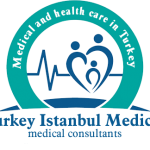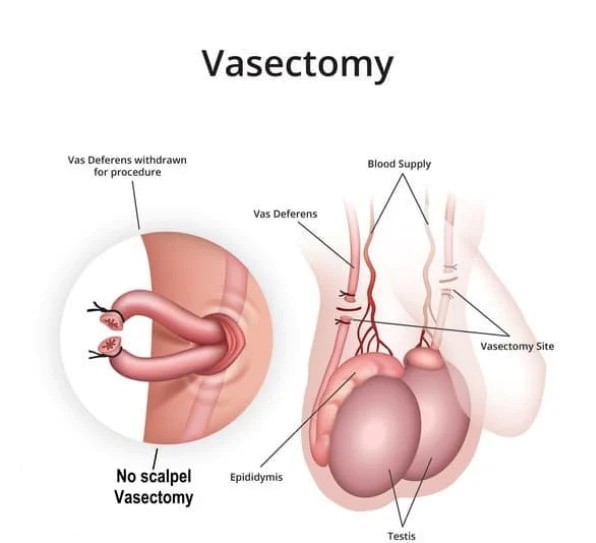What is a Vasectomy (Voluntary Surgical Sterilization) ?
Vasectomy (Voluntary Surgical Sterilization) ; It is a birth control technique that prevents sperm from entering the male reproductive organs. It is preferred because of its low complication rate. And it is an application that has been used by many patients recently.
Vasectomy does not prevent sexually transmitted diseases. It is a method that is reversible within a certain period of time. With the medical developments, there are many birth control methods available. Condoms, spirals and birth control pills are among the methods used today.
There are some issues frequently asked by patients about the application and the process. First of all, there will be no disruption in hormone production in men as a result of the procedures.
It is known that there is no direct link between the hormone called testosterone and sperm production. Especially for people who want to have children in the future, a decision should be made after a comprehensive evaluation by a specialist doctor.
What is Vasectomy Done For?
Vasectomy is a safe and effective birth control option for men who are confident they don’t want to have children in the future.
- Is approximately 100 percent effective in preventing pregnancy.
- Is a simple surgery with a low risk of complications or side effects.
- The cost of vasectomy is much less than the cost of female sterilization (tubular ligation) or long-term contraceptives for women.
- A vasectomy means you don’t need to take birth control steps like wearing a condom before having sex.
Who Is Vasectomy Suitable For?
- Men/couples who do not want to have children
- Having an inherited disease and childbearing that is dangerous for the child and/or himself
- Men/couples who have as many children as they want and no more
- Men/couples who do not prefer to be protected with other contraception methods
According to the law, anyone over the age of 18 can have a sterilization procedure with their own consent, and with the consent of their spouse if they are married.
What are The Advantages and Disadvantages of Vasectomy?
People who want to have a vasectomy operation should first have information about the advantages and disadvantages. This procedure, which is largely permanent, is not suitable for men who have doubts about having children. For this reason, it is very important to examine all the criteria in detail and to make a final decision.
What are The Advantages of Vasectomy Procedure?
- It is one of the most successful methods among birth control methods.
- After the vasectomy procedure, pregnancy status decreases to very low levels such as 1%.
- There is no sexual dysfunction or reluctance.
- Sperm production in the reproductive system continues as before.
- The person continues to see ejaculation (ejaculation) as before. The only difference is that sperms are prevented from entering the semen.
What are The Disadvantages of Vasectomy Procedure?
- Since it is mostly a permanent process, a difficult process awaits people who change their minds and want to have a child.
- It is one of the high cost surgeries.
- It does not protect against sexually transmitted diseases such as AIDS and hepatitis.
- People should use protective methods during sexual intercourse with their partners.
How is Vasectomy Surgery Performed?
Before Vasectomy Surgery:
Before vasectomy surgery, your doctor will want to discuss it with you to make sure this method is the right birth control method for you.
At your first date, you can talk about:
- It is not a good choice if a vasectomy is permanent and there is a possibility that you might want to have children in the future.
- If you have children and are in a relationship, what your partner thinks about the decision
- Other birth control methods you can use
- Vasectomy surgery, healing process and possible complications
Vasectomy is usually done under local anesthesia; this means you will be awake and medications will be used to numb the surgical field.
During Vasectomy Surgery:
This surgery usually takes about 10 to 30 minutes.
During a vasectomy, your doctor will likely follow these steps:
- Anesthetizing the surgical site by injecting a local anesthetic into the skin of your scrotum with a small needle.
- Making a small incision in the upper part of your scrotum when the operative field is numb, or making a small hole in the scrotum instead of the incision using the “scalpelless” technique.
- Locating the tube (vas deferens) that carries semen from your testicle.
- Retraction of part of the vas deferens.
- Incision of the vas deferens from the place where it was removed from the scrotum.
- Closure of the vas deferens using a combination of ligation, heat (cauterization), surgical clips, or another method. Your doctor will then insert the ends of the vas deferens back into the scrotum.
- Closure of the incision in the surgical site. Stitches or glue can be used. In some cases, the wound may be left to close on its own over time.
What Complications Can Be Encountered After Vasectomy?
- Pain
- Infection
- Bleeding
- Orchialgia (Chronic Pain Condition)
- Sexual Reluctance and Erection Problems (May be experienced as psychological origin)
- Allergic Reaction
- Hematoma (Coagulation Problems)
It is recommended that you consult your doctor without losing time in these possible complications that may occur.
What are The Points to Consider After Vasectomy Surgery?
Following the vasectomy, you will have some bruising, swelling, and pain. These symptoms usually improve within a few days. Your doctor will give you some instructions for your recovery after surgery.
Your doctor may suggest:
- After the operation, tight underwear should be worn for at least 48 hours. Preferring this type of underwear reduces swelling in the scrotum.
- Cold application should be applied to the scrotum for two days after the operation.
- Post-procedure movement should be restricted for a few days. You can return to daily activities after a few days, but activities such as heavy lifting and sports should be avoided.
- Sexual intercourse should be avoided for 7-10 days after vasectomy. Because pain can be felt during ejaculation (ejaculation), blood can be seen in the semen.
- After the vasectomy procedure, men should use other birth control methods until it is certain that there are no sperm in the semen.
Frequently Asked Questions About Vasectomy
-
Is Vasectomy a Painful Method?
Vasectomy is not a painful procedure as it is usually performed under local anesthesia. Pain may occur after the procedure. After the procedure, the person is discharged on the same day and can continue his daily life.
-
Is Vasectomy Reversible Possible?
You have a 50% chance of returning after the voluntary sterilization operation. For this reason, you should think well before the operation and be sure of your decision. While it is theoretically possible to recover, in practice you may need to undergo a series of operations to recover.
Another important criterion for return is the time that has passed since the operation. If it has been a long time since the operation and you want to have children again, it will not be easy to cancel the vasectomy operation.
-
Is Vasectomy a Risky Practice?
As in every surgical procedure, some complications can be seen in vasectomy surgery. The most risky of these complications are serious bleeding and infections after surgery. But such situations do not occur often. Another risk is the process of creating a new path for the cut sperm ducts towards each other. In such cases, necessary medical interventions are made quickly.
It should be known that protection does not start immediately after the operation. The sperm remaining in the channels are completely finished after about 20 ejaculations.
-
How Effective Is Vasectomy?
Vasectomy is a 100% effective method and is permanent for life. For this reason, the decision-making process should be well evaluated.
-
Does Vasectomy Damage Masculinity?
Vasectomy does not harm masculinity. Male hormones continue to be produced, orgasm can be achieved, it has nothing to do with erection problems. All male functions continue as before the procedure. Vasectomy only prevents the flow of sperm into the semen during ejaculation.
-
Does Vasectomy Prevent Sexually Transmitted Diseases?
No. Additional protection methods are needed to protect against sexually transmitted diseases. Vasectomy provides protection against unwanted pregnancies.
-
Which Doctor Performs Vasectomy Surgery?
This procedure, known as male sterilization, is performed by urology specialist operators and surgeons. Since it is a simple but sensitive operation, it must be performed by a specialist in the field of Urology.

